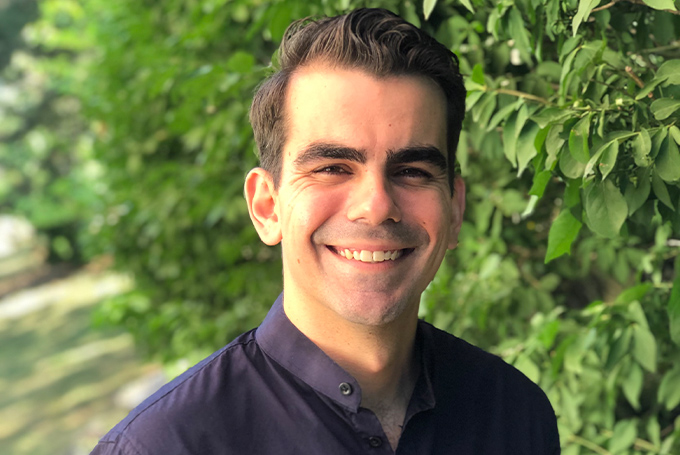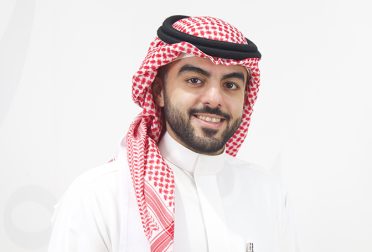B.S., Mechanical Engineering
M.S., Biomedical Engineering
Eduardo Latouche is the director of engineering at Qlibrium, a medical device startup working to develop a platform technology for wearable injectable drug delivery systems. When he was looking into going back to school, he found strong connections to SDM and its engineering management principles in the medical device community. “All these people were giving me the right signals that if I wanted to continue in medtech, this was definitely something that was going to push me forward,” he said.
How did you hear about SDM? What made you want to join the program?
I work at a startup and one of our two cofounders went to MIT for his PhD. I floated the idea of going back to school to gain more business experience, and he mentioned to me that some of the most impactful and awesome people he met at MIT were from SDM. Then we were at a medical device incubator that also housed a company called RevBio, Inc. Michael Brown, one of its cofounders, just finished SDM and spoke very highly of the program, and it resonated with me.
I went to every MBA information session I was interested in potentially applying to, but I was already fairly convinced I was more of an MIT person. We had collaborators from the Institute and I loved the culture. A contact put me in touch with Ben [Linville-Engler], and he and Amal [Elalam] got me into one of the lectures. I went to the first project management lecture, taught by Bryan Moser, and I was blown away. We discussed key principles of program management, and when we discussed a particular program at Boeing it turned out that one of the people that was involved in this program was in the class! He was able to talk about the experience firsthand and could confirm what Moser said. From that moment on I was convinced I was not applying to any MBAs, just SDM.
What’s something you you’re excited to learn about in the core class?
I’m interested to learn more of the system architecture side. What you’re not going to get from an MBA is a sense of system architecture or system design, and my current work has a lot of that. We have this highly complex system that we’re developing for insulin delivery or other biologics, and I’m right at the intersection of electrical engineering, electrochemistry, mechanical engineering, software, and firmware. I would love to get a more formal education in how to architect at a fundamental level from some of the most recognized faculty in the world.
When our work gets really complex it’s important to modularize things and have a more organized approach. I can already see a lot of this in the preliminary work we’ve been assigned before the classes start, and I hope to learn a more structured approach to organized architecture and design.
Are there other courses at MIT you’re excited for?
I love the medical device space and I don’t see myself jumping out of it immediately, but I think you can learn a lot from other disciplines, areas like banking and software. I’ve been sort of narrowly focused on medical devices, and I believe having a wider scope will help me see things I maybe hadn’t seen before. I also see parallels with agriculture and biotech.
I recently spoke to a US Air Force person who’s more focused on space. We had a brief discussion about wearables and how to better monitor astronauts if we want to extend their time for deep space exploration. That’s one of those things I’d never given any thought to, and he suggested I consider being a part of that effort. There’s a lot of amazing stuff happening out there, especially at MIT.
What else excites you about the program?
As a professional with more experience, I appreciate how flexible the program is. I really enjoy what I do for a living and I get a lot out of it, personally and professionally. As I was evaluating going towards an MBA or SDM, one of the key questions I had to answer in my head was: do I want to just completely disconnect from my company and the startup I’ve helped build to go pursue an MBA, or do I want a more flexible transition? This first semester I’m just taking the core class, because I want to dedicate more time to the startup. Next semester I’ll ramp up my course load. You can’t do that in a typical MBA program. Being able to manage your workload with such a high degree of flexibility is great.




